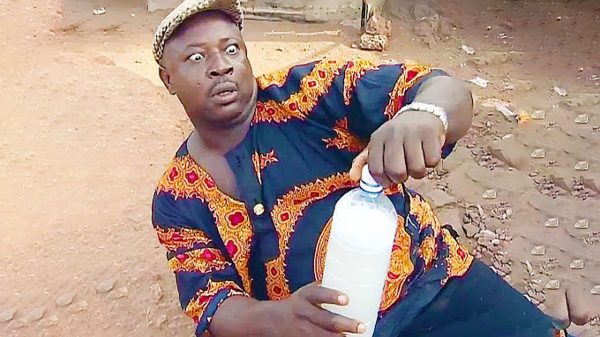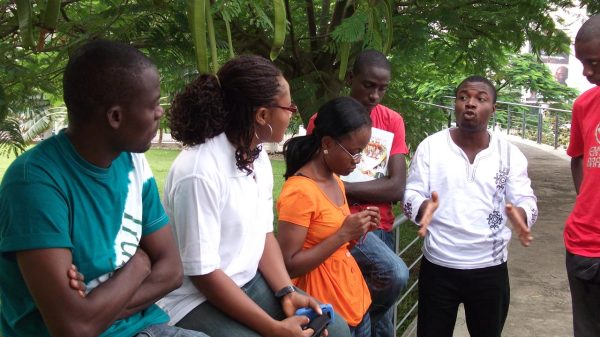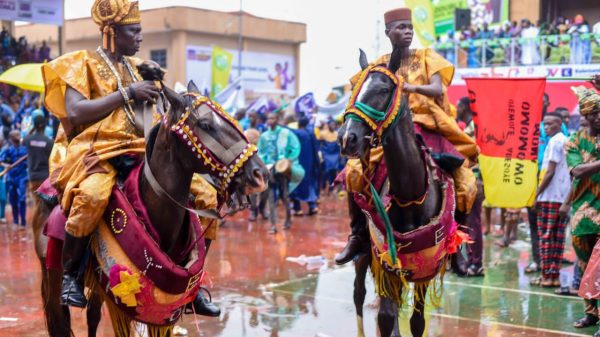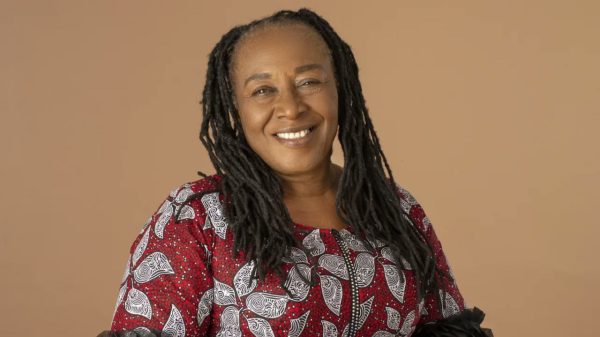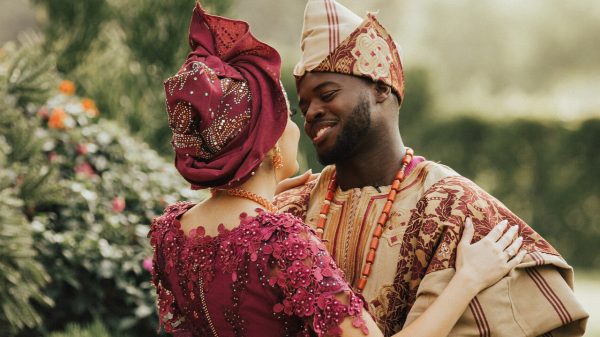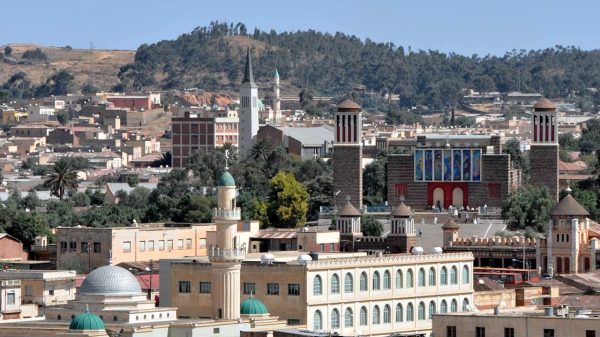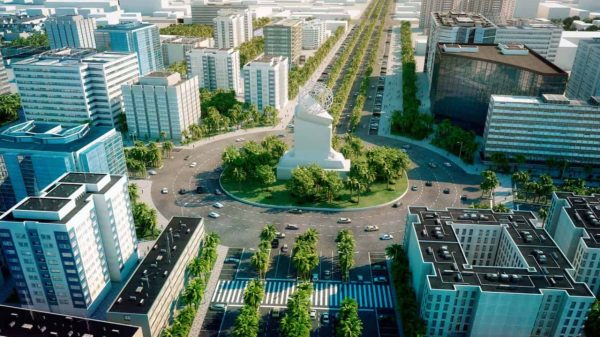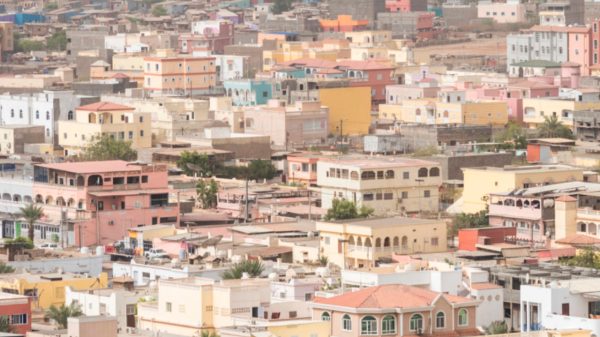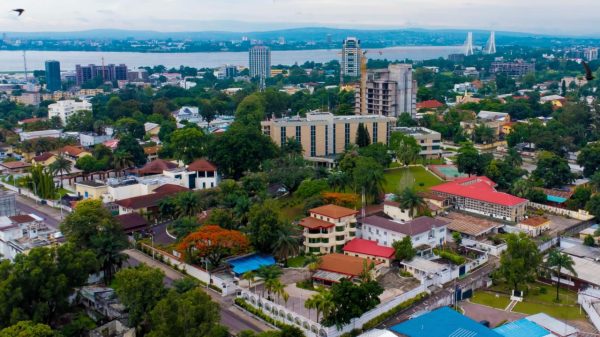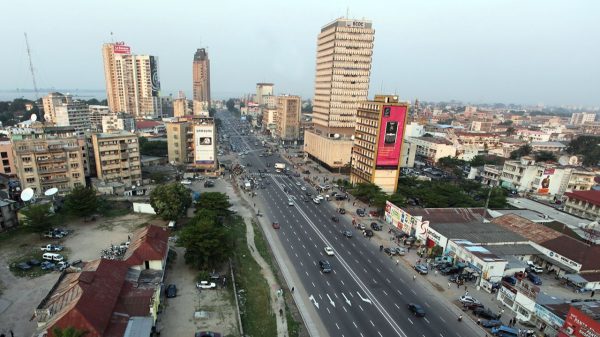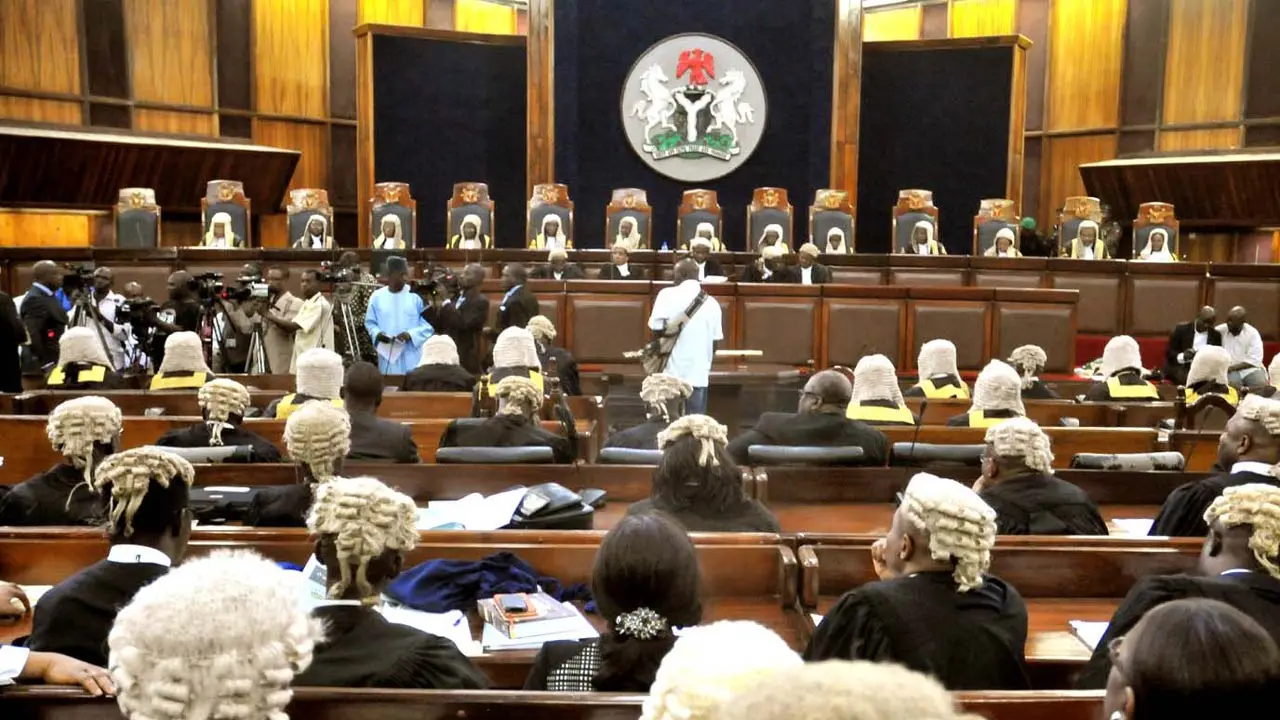The cornerstone of the rights and privileges enjoyed by a Nigerian citizen lies within a comprehensive legal framework, primarily anchored by the Constitution of the Federal Republic of Nigeria, 1999 (as amended).
This supreme law of the land dedicates Chapter IV to enshrining fundamental human rights, thereby establishing a bedrock of protections for individuals within the nation’s borders. However, the spectrum of a citizen’s entitlements extends beyond this crucial chapter, encompassing rights and privileges granted through various other Nigerian laws and statutes. Furthermore, Nigeria’s commitment to international human rights standards is evidenced by its ratification of treaties such as the African Charter on Human and Peoples’ Rights, which further broadens the scope of protections afforded to its citizens.
A thorough understanding of these rights is paramount for active and informed civic engagement, enabling citizens to participate meaningfully in the democratic process and to hold the government accountable for its actions. Moreover, a clear grasp of one’s entitlements is indispensable for seeking appropriate redress when violations occur, ensuring that justice is accessible to all. Despite the significance of these constitutional guarantees, studies suggest that the level of awareness regarding fundamental rights remains notably low among Nigerian citizens. This gap in knowledge can inadvertently hinder individuals from fully exercising their rights and navigating the avenues for justice when faced with infringements.
The observed low level of awareness concerning fundamental rights among Nigerian citizens underscores a pressing need for accessible and widespread dissemination of information regarding these entitlements. This lack of awareness can significantly impede citizens’ ability to effectively claim their rights and to recognize instances where these rights are being violated. Consequently, this knowledge deficit creates a vulnerability that can be exploited and ultimately undermines the intended protective function of these constitutionally enshrined rights. This report aims to address this critical gap by providing a detailed and authoritative exposition of the rights of a Nigerian citizen.
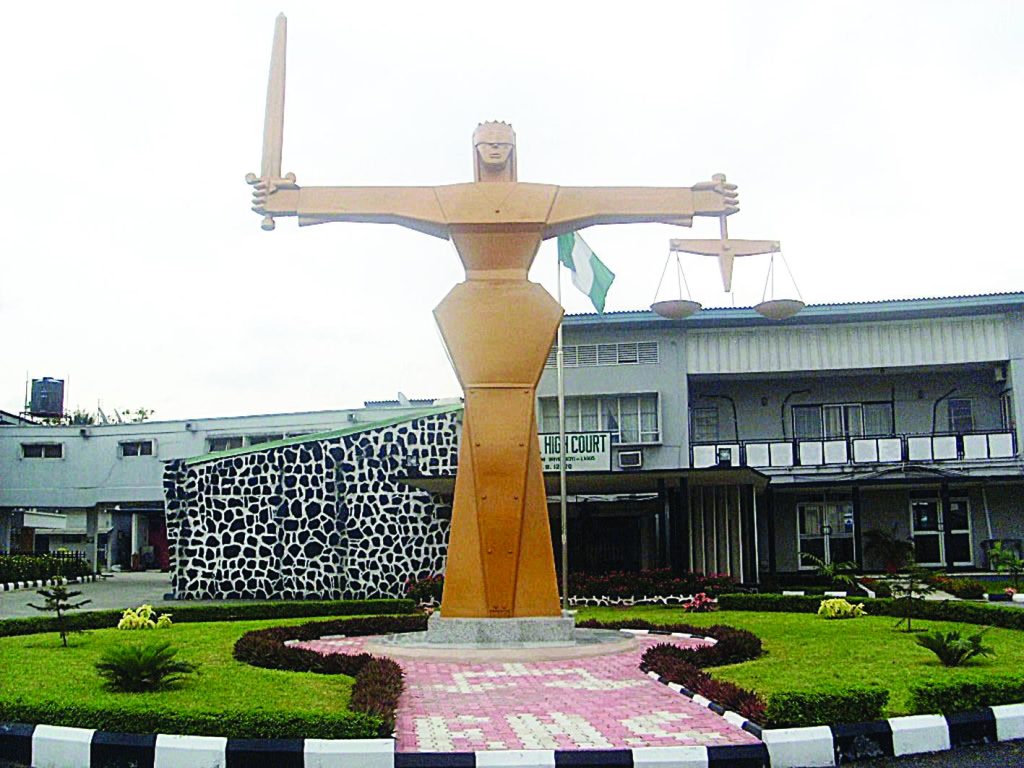
1. Fundamental Human Rights in the Nigerian Constitution (Chapter IV)
Chapter IV of the Nigerian Constitution meticulously outlines a series of fundamental human rights that are guaranteed to every Nigerian citizen. These rights form the bedrock of individual liberties and protections within the nation.
- Right to Life (Section 33)
The right to life, enshrined in Section 33 of the Constitution, stands as the most sacrosanct of all human rights, serving as the indispensable foundation upon which all other rights are predicated. This fundamental right dictates that every person possesses an inherent right to existence and shall not be intentionally deprived of their life. The sole exception to this provision is in the execution of a sentence handed down by a court of law following a conviction for a criminal offense in Nigeria.
The scope of this right extends beyond merely prohibiting intentional killing by the state; it also imposes a positive obligation on the government to actively protect the lives of its citizens through the provision of essential infrastructure and security measures. The precise moment at which personhood commences, particularly concerning the unborn child, remains a subject of debate, with perspectives ranging from conception to birth. Nigerian law, however, appears to align with the view that legal personhood is attained when a child becomes independent of its mother’s body.
The Constitution outlines specific circumstances under which the deprivation of life is not considered unlawful, including the use of reasonably necessary force for the defense of any person or property against unlawful violence, to effect a lawful arrest or prevent the escape of a lawfully detained person, or for the purpose of suppressing a riot, insurrection, or mutiny. While the right to life is paramount, the Constitution acknowledges exceptions for capital offenses such as murder, treason, and armed robbery, where the death penalty may be imposed by a duly constituted court of law. The application of the death penalty has been a subject of ongoing debate, with Nigeria having observed a moratorium on executions at one point.
The inherent tension between the state’s authority to impose capital punishment and the fundamental right to life presents significant ethical and human rights considerations. The continuing discourse surrounding the constitutionality and efficacy of the death penalty underscores the evolving understanding and interpretation of this fundamental right.
- Right to Dignity of the Human Person (Section 34)
Section 34 of the Constitution unequivocally affirms that every individual is entitled to respect for the inherent dignity of their person. This right, considered both intrinsic and fundamental to the very essence of personhood, mandates that all individuals be treated with equality and respect, irrespective of their circumstances. Consequently, the Constitution explicitly prohibits subjecting any person to torture or to inhuman or degrading treatment, from holding any person in slavery or servitude, and from requiring any person to perform forced or compulsory labor.
The definition of forced or compulsory labor, as outlined in the Constitution, excludes specific categories such as labor required as a consequence of a sentence or order of a court, labor required of members of the armed forces or the Nigeria Police Force in pursuance of their duties, labor required instead of service in the armed forces for those with conscientious objections, labor bor or service that forms part of normal communal or civic obligations.
Regrettably, violations of the right to dignity of the human person are frequently reported in the context of detention and prison settings across Nigeria. Detainees and prisoners are often subjected to various forms of torture, inhuman, and degrading treatment, including poor living conditions, medical neglect, and physical abuse. Furthermore, the imposition of punishment that is grossly disproportionate to the offense committed can also be construed as a violation of this fundamental right.
Despite the constitutional guarantees, the persistent reports of torture and inhumane treatment within detention facilities highlight a significant discrepancy between legal provisions and their actual enforcement. This situation underscores the critical need for the establishment of stronger oversight and accountability mechanisms within law enforcement agencies and correctional institutions to ensure that the dignity of every individual is consistently respected and protected.
- Right to Personal Liberty (Section 35)
Section 35 of the Constitution guarantees to every person the right to personal liberty, stipulating that no individual shall be deprived of such liberty except in specific instances and strictly in accordance with procedures permitted by law. This fundamental right ensures the freedom of movement and safeguards against unlawful restraint or confinement.
The Constitution enumerates several exceptions under which an individual may be lawfully deprived of their personal liberty. These include detention in execution of a sentence or order of a court for a criminal offense, by reason of failure to comply with a court order or to secure the fulfillment of any obligation imposed by law, for the purpose of bringing a person before a court in execution of a court order or upon reasonable suspicion of having committed a criminal offense, to such extent as may be reasonably necessary to prevent the commission of a criminal offense, in the case of a person who has not attained the age of eighteen years for the purpose of their education or welfare, in the care or treatment of persons suffering from infectious or contagious diseases, persons of unsound mind, persons addicted to drugs or alcohol, or vagrants, or for the purpose of preventing the unlawful entry of any person into Nigeria or of effecting their expulsion, extradition, or other lawful removal from Nigeria.
The Constitution further safeguards the rights of arrested or detained persons by granting them the right to remain silent or avoid answering any question until after consultation with a legal practitioner or any other person of their own choice. Any person arrested or detained must be informed in writing within twenty-four hours (and in a language they understand) of the facts and grounds for their arrest or detention. Moreover, individuals arrested or detained upon reasonable suspicion of having committed a criminal offense must be brought before a court of law within a reasonable time, which is defined as one day if a court of competent jurisdiction is within a radius of forty kilometers, and two days in any other case, or such longer period as may be considered reasonable by the court in the circumstances. Any person who is unlawfully arrested or detained is entitled to compensation and a public apology from the appropriate authority or person as specified by law. Despite these detailed provisions, the issue of prolonged detention without trial remains a significant concern within the Nigerian criminal justice system.30
The meticulous provisions outlined in the Constitution regarding arrest and detention are designed to prevent arbitrary deprivation of personal liberty. However, the persistent problem of prolonged detention without trial suggests ongoing challenges in the consistent adherence to these constitutional safeguards. This indicates potential systemic inefficiencies or instances of abuse within the criminal justice system that require diligent attention and reform.
- Right to Fair Hearing (Section 36)
Section 36 of the Constitution guarantees to every person the right to a fair hearing within a reasonable time by a court or other tribunal established by law and constituted in such manner as to secure its independence and impartiality. This right is considered perhaps the most intrinsic of all guaranteed rights, forming the very foundation upon which the administration of both civil and criminal justice rests.
The right to a fair hearing embodies the fundamental principles of natural justice, encapsulated in the Latin maxims audi alteram partem, which mandates that the other side must be heard, and nemo judex in causa sua, which dictates that no one should be a judge in their own case. This constitutional guarantee encompasses several key elements, including the right to a public hearing, the presumption of innocence for every person charged with a criminal offense until proven guilty, the right to be promptly informed in a language they understand and in detail of the nature of the offense, the right to be given adequate time and facilities for the preparation of their defense, the right to defend themselves in person or by legal practitioners of their own choice, the right to examine, in person or by their legal practitioners, the witnesses called by the prosecution and to obtain the attendance and examination of their own witnesses under the same conditions, and the right to have the free assistance of an interpreter if they cannot understand the language used at the trial.
Furthermore, the Constitution explicitly prohibits holding a person guilty of a criminal offense for an act or omission that did not constitute such an offense at the time it took place, and it also prohibits imposing a penalty for any criminal offense that is heavier than the penalty in force at the time the offense was committed.7 The principle of double jeopardy is also enshrined, preventing the retrial of a person for an offense for which they have already been tried and either convicted or acquitted by a competent court or tribunal, except upon the order of a superior court. Notably, the rules of fair hearing, incorporating the principles of natural justice, extend not only to proceedings before courts or tribunals but also to hearings before administrative authorities, provided that the affected person is allowed to make representations before the body whose decision must not be final and conclusive.
The paramount importance of fair hearing as a cornerstone of Nigeria’s jurisprudence and legal system cannot be overstated. It mandates that every reasonable and fair-minded observer who witnesses legal proceedings should be able to conclude that the court or tribunal has been fair to all parties involved.35 However, the practical realization of this fundamental right faces challenges, including issues of corruption within the legal system and the often slow pace of legal proceedings, which can inadvertently deny individuals their right to a timely hearing. Addressing these systemic challenges is crucial to ensure that the constitutional guarantee of a fair hearing is a tangible reality for all citizens.
- Right to Private and Family Life (Section 37)
Section 37 of the Constitution explicitly guarantees and protects the privacy of citizens, their homes, correspondence, telephone conversations, and telegraphic communications. This right to privacy is considered one of the most comprehensive and highly valued rights, often described as the right to be “left alone”. Notably, this is one of the few rights under the Nigerian Constitution that does not possess any explicit derogations within its main section, although it remains subject to the general limitations stipulated under Section 45 of the Constitution.
The scope of this right encompasses the privacy of a citizen in both their physical and moral activities. It ensures security in the privacy of one’s physical person, moral choices, and reputation, which cannot be lawfully infringed upon except through due process. In line with this, the concept of “stop and search” or the arrest of a physical person could potentially amount to an invasion of privacy and personal liberty unless there exists reasonable suspicion warranting such action. Furthermore, the right to privacy extends to one’s home, with the principle that every person’s home is their castle, generally requiring consent or a lawful warrant for entry by law enforcement officials.
While the marginal note to Section 37 refers to the “right to private and family life,” the phrase “family life” is notably absent from the main body of the provision, which focuses solely on the privacy of individuals, their homes, and communications. This has led to some debate regarding the extent to which “family life” is expressly guaranteed under this section, with some legal scholars arguing that its inclusion only in the marginal note suggests it does not form part of the rights explicitly protected under Chapter IV. Earlier constitutions of Nigeria had included more explicit protections for both “private and family life” within the body of their texts, mirroring international human rights instruments like the European Convention on Human Rights.
Despite this ambiguity, the right to privacy as enshrined in Section 37 serves as a crucial safeguard against arbitrary interference with an individual’s personal space, communications, and sense of security within their own home.
- Right to Freedom of Thought, Conscience, and Religion (Section 38)
Section 38(1) of the Constitution guarantees to every person the right to freedom of thought, conscience, and religion, encompassing the freedom to change their religion or belief, and the freedom, either alone or in community with others, and in public or in private, to manifest and propagate their religion or belief in worship, teaching, practice, and observance. This right is considered inalienable and justiciable, ensuring that individuals are free to hold and express their beliefs without undue interference.
This fundamental freedom extends to all aspects of thought and belief, including the right to have or adopt a religion or belief of one’s choice, and importantly, the freedom to change one’s religion or beliefs without coercion. The Constitution further protects the religious freedom of students in places of education by stipulating that no student shall be required to receive religious instruction or participate in any religious ceremony or observance pertaining to a religion other than their own or a religion not approved by their parent or guardian. Additionally, religious communities or denominations are constitutionally protected from being prevented from providing religious instruction to their pupils in any educational institution maintained wholly by that community or denomination.7 However, it is crucial to note that this section does not grant any person the right to form, participate in the activity of, or be a member of a secret society.
In line with the principle of religious freedom, Section 10 of the Constitution explicitly states that the Government of the Federation or of a State shall not adopt any religion as a State Religion, ensuring the secular nature of the Nigerian state. Despite this constitutional provision, the recognition and application of religious freedom can face complexities in practice, particularly in a multi-religious society like Nigeria where tensions and conflicts can arise between different religious groups.
- Right to Freedom of Expression and the Press (Section 39)
Section 39(1) of the Constitution guarantees to every person the right to freedom of expression, encompassing the freedom to hold opinions and to receive and impart ideas and information without interference. This fundamental right extends to the freedom of the press, recognizing the crucial role of the media in a democratic society.
Subsection (2) of Section 39 further elaborates on this right by stating that every person shall be entitled to own, establish, and operate any medium for the dissemination of information, ideas, and opinions. However, this is subject to a proviso that no person, other than the government of the federation or of a state or any other person or body authorized by the president on the fulfillment of conditions laid down by an Act of the National Assembly, shall own, establish, or operate a television or wireless broadcasting station for any purpose whatsoever.
While the right to freedom of expression is broadly guaranteed, the Constitution also acknowledges certain limitations. Subsection (3) of Section 39 stipulates that nothing in this section shall invalidate any law that is reasonably justifiable in a democratic society for the purpose of preventing the disclosure of information received in confidence, maintaining the authority and independence of courts, or regulating telephony, wireless broadcasting, television, or the exhibition of cinematograph films. Additionally, restrictions may be imposed upon persons holding office under the government, members of the armed forces, the Nigeria Police Force, or other government security services or agencies established by law. Despite these constitutional protections, freedom of expression and the press in Nigeria continue to face challenges, including allegations of government censorship, intimidation and harassment of journalists, and the existence of laws such as those related to defamation and cybercrime that can be used to restrict free speech.
- Right to Peaceful Assembly and Association (Section 40)
Section 40 of the Constitution guarantees to every person the right to assemble freely and associate with other persons, and in particular, they may form or belong to any political party, trade union, or any other association for the protection of their interests. These rights are fundamental to a democratic society, allowing citizens to come together for common purposes, express their views publicly, and form associations to protect their shared interests.
The right to peaceful assembly and association encompasses the freedom to join political parties and trade unions, enabling citizens to participate in the political process and advocate for their labor rights.7 An assembly is generally presumed to be peaceful if its organizers profess peaceful intentions and the conduct of the assembly is non-violent. However, the exercise of these rights is subject to certain limitations as outlined in the Constitution and other laws. These limitations are permissible in the interest of defense, public safety, public order, public morality, public health, and for the purpose of protecting the rights and freedoms of other persons. Despite these guarantees, reports of violent repression of peaceful protests by security forces raise concerns about the practical enjoyment of the right to peaceful assembly in Nigeria.
- Right to Freedom of Movement (Section 41)
Section 41(1) of the Constitution explicitly states that every citizen of Nigeria is entitled to move freely throughout Nigeria and to reside in any part thereof, and no citizen shall be expelled from Nigeria or refused entry thereto or exit therefrom. This fundamental right ensures that Nigerian citizens can travel and reside freely within the borders of their country without undue restrictions.7 It is important to note that this specific right is accorded only to citizens of Nigeria. Non-citizens who are lawfully within Nigeria also generally have the right to move freely but can be subject to expulsion in accordance with the law.
While the right to freedom of movement is a cornerstone of citizenship, the Constitution recognizes certain justifiable limitations. Subsection (2) of Section 41 provides that nothing in subsection (1) shall invalidate any law that is reasonably justifiable in a democratic society, including laws imposing restrictions on the residence or movement of any person who has committed or is reasonably suspected to have committed a criminal offense, in order to prevent them from leaving Nigeria. Additionally, laws providing for the removal of any person from Nigeria to any other country for trial or imprisonment in execution of a court sentence for a criminal offense are also permitted, provided that there is a reciprocal agreement between Nigeria and such other country in relation to such matters. This right is also subject to the general restrictions on fundamental rights as outlined in Section 45 of the Constitution.
- Right to Acquire and Own Immovable Property (Section 43)
Section 43 of the Constitution affirms that, subject to the provisions of this Constitution, every citizen of Nigeria shall have the right to acquire and own immovable property anywhere in Nigeria. This right empowers Nigerian citizens to acquire and possess land and other forms of immovable property in any part of the country without facing discriminatory barriers based on their origin or other factors.
However, it is crucial to understand that this right is not absolute and is subject to other provisions within the Constitution, most notably the Land Use Act of 1978. This Act vests all land within the territory of each state in the Governor of that state, to be held in trust for the people. Consequently, individual ownership of land in Nigeria is primarily based on rights of occupancy granted by the government, rather than outright freehold ownership. The constitutional right to own property extends beyond merely tangible land and buildings to encompass incorporeal property rights as well, representing the bundle of rights exercisable in relation to such property. This right is considered fundamental and essential for providing citizens with a sense of belonging and security within their nation.
- Right to Freedom from Discrimination (Section 42)
Section 42(1) of the Constitution explicitly guarantees that no citizen of Nigeria of a particular community, ethnic group, place of origin, sex, religion, or political opinion shall, by reason only that they are such a person, be subjected either expressly by, or in the practical application of, any law in force in Nigeria or any executive or administrative action of the government, to disabilities or restrictions to which citizens of Nigeria of other communities, ethnic groups, places of origin, sex, religions, or political opinions are not made subject, or be accorded either expressly by, or in the practical application of, any law in force in Nigeria or any such executive or administrative action, any privilege or advantage that is not accorded to citizens of Nigeria of other communities, ethnic groups, places of origin, sex, religions, or political opinions.2 This provision aims to enshrine the principle of egalitarianism and prevent unfair treatment based on identity.
This constitutional guarantee is further reinforced by Section 15(2) of the Constitution, which actively encourages national integration while explicitly prohibiting discrimination on the grounds of place of origin, sex, religion, status, ethnic or linguistic association or ties. Moreover, Section 42(2) emphasizes that no citizen of Nigeria shall be subjected to any disability or deprivation merely by reason of the circumstances of their birth. However, subsection (3) of Section 42 acknowledges certain permissible limitations, stating that nothing in subsection (1) shall invalidate any law by reason only that the law imposes restrictions with respect to the appointment of any person to any office under the State or as a member of the armed forces of the Federation or member of the Nigeria Police Forces or to an office in the service of a body corporate established directly by any law in force in Nigeria.
While the Constitution provides a robust legal framework against discrimination on several key grounds, Nigeria continues to grapple with issues such as gender inequality, discrimination against ethnic and religious minorities, and concerns related to the rights of lesbian, gay, bisexual, and transgender (LGBT) individuals. This suggests that despite the constitutional provisions, achieving true freedom from discrimination remains a significant societal challenge that requires ongoing efforts in both legal enforcement and social reform.
The fundamental human rights enshrined in Chapter IV of the Nigerian Constitution are not isolated provisions but rather reflect a commitment to internationally recognized human rights principles, aligning with standards set forth in the Universal Declaration of Human Rights and the African Charter on Human and Peoples’ Rights. This alignment underscores Nigeria’s dedication to upholding global norms of human rights protection.
2. Limitations and Restrictions on Fundamental Rights
While Chapter IV of the Nigerian Constitution guarantees a range of fundamental human rights, these rights are not absolute and are subject to certain limitations and restrictions as stipulated within the Constitution itself. Section 45 of the Constitution provides a general framework for these limitations, recognizing that in a democratic society, it may be necessary to enact laws that reasonably restrict the enjoyment of certain rights in specific circumstances.
Subsection (1) of Section 45 states that nothing in sections 37 (Right to Private and Family Life), 38 (Right to Freedom of Thought, Conscience and Religion), 39 (Right to Freedom of Expression and the Press), 40 (Right to Peaceful Assembly and Association), and 41 (Right to Freedom of Movement) shall invalidate any law that is reasonably justifiable in a democratic society in the interest of defense, public safety, public order, public morality, or public health, or for the purpose of protecting the rights and freedom of other persons. This provision grants the legislature the power to enact laws that may place restrictions on these specific rights, provided that such restrictions are deemed necessary and proportionate within a democratic context to achieve the stated objectives.
Furthermore, subsection (2) of Section 45 addresses the possibility of derogation from certain fundamental rights during periods of emergency. It stipulates that an Act of the National Assembly shall not be invalidated solely because it provides for the taking, during periods of emergency, of measures that derogate from the provisions of section 33 (Right to Life) or section 35 (Right to Personal Liberty) of the Constitution. However, such measures must be reasonably justifiable for the purpose of dealing with the specific emergency situation.7 Notably, the Constitution places a significant limitation on this power of derogation, stating that nothing in Section 45 shall authorize any derogation from the provisions of section 33, except in respect of death resulting from acts of war. Similarly, no derogation is permitted from the provisions of section 36(8), which prohibits the enactment of retrospective criminal laws. Subsection (3) of Section 45 clarifies that a “period of emergency” refers to any period during which there is in force a Proclamation of a state of emergency declared by the President in exercise of the powers conferred on him under section 305 of the Constitution.
Beyond these general limitations outlined in Section 45, specific sections detailing individual fundamental rights also contain their own inherent limitations. For instance, as previously discussed, the right to freedom of expression is subject to laws aimed at preventing the disclosure of confidential information, maintaining the authority of courts, and regulating specific forms of media.7 Similarly, the right to freedom of movement is limited in cases involving individuals suspected of criminal offenses and for the purposes of extradition under international agreements.
The interpretation and practical application of these limitations are crucial for safeguarding fundamental rights while allowing the state to address legitimate concerns related to public safety and national security. The concept of what is “reasonably justifiable in a democratic society” serves as a key criterion in this interpretation. However, concerns have been raised that the broad and somewhat elastic nature of these restrictions could potentially be used to justify unwarranted encroachment on citizens’ rights. Ideally, the onus of demonstrating the necessity and justification for any law that derogates from fundamental rights should rest upon the authorities enacting such laws, rather than on the individual whose rights have been potentially violated.
The expansive nature of the limitations outlined in Section 45 grants the government considerable authority to restrict fundamental rights. The interpretation of broad terms such as “public order” and “public morality” inherently carries a degree of subjectivity, which could potentially lead to abuses if not subjected to rigorous scrutiny by an independent judiciary. Therefore, it is imperative that the judiciary plays a strong and impartial role in ensuring that any restrictions imposed on fundamental rights are genuinely necessary and proportionate within the context of a democratic society, and not merely used as a pretext to suppress dissent or infringe upon citizens’ freedoms.
3. Other Rights and Privileges of Nigerian Citizens Beyond Chapter IV
Beyond the fundamental human rights enshrined in Chapter IV, the Nigerian legal framework grants citizens a range of other rights and privileges through various constitutional provisions and statutes.
- Rights under Chapter II: Fundamental Objectives and Directive Principles of State Policy
Chapter II of the Constitution, comprising Sections 13 to 24, outlines the Fundamental Objectives and Directive Principles of State Policy. This chapter lays down the fundamental obligations of the government and sets forth guiding principles for state policy across various domains, including national unity, the economy, society, education, foreign policy, and environmental protection. Specific provisions within this chapter address crucial aspects such as the equality of rights and opportunities for all citizens, the sanctity of the human person, the right to work, the right to health, the right to education, and the right to an adequate standard of living.
However, a critical aspect of Chapter II is its non-justiciable nature, as stipulated by Section 6(6)(c) of the Constitution. This means that citizens cannot directly approach the courts to seek enforcement of the principles and objectives outlined in this chapter.3 Despite their non-justiciable status, these principles are intended to serve as a guide for the government in formulating and implementing policies and legislation aimed at promoting the welfare and well-being of Nigerian citizens. Nevertheless, there is ongoing debate among legal scholars and activists regarding the desirability of making these socio-economic and cultural rights justiciable to enhance government accountability and promote socio-economic development.
The non-justiciable nature of the rights enshrined in Chapter II of the Nigerian Constitution presents a significant constraint on the legal enforceability of socio-economic and cultural rights within the country. This limitation can impede progress in critical areas such as poverty alleviation, healthcare provision, and educational access, as citizens lack direct legal avenues to compel the government to fulfill these constitutional aspirations. While these principles are meant to inform government policy, their lack of legal enforceability means that the government is not legally obligated to ensure their realization, potentially leading to a disparity between constitutional ideals and the everyday experiences of many Nigerians.
- Rights under the Child Rights Act
The Child Rights Act (2003) represents a significant piece of legislation in Nigeria aimed at safeguarding the rights and well-being of children. This Act incorporates the principles of the United Nations Convention on the Rights of the Child into Nigerian law, providing a comprehensive framework for the protection of individuals under the age of eighteen years.
The Child Rights Act guarantees a wide array of rights to Nigerian children, including the right to survival and development, the right to a name and registration at birth, the right to family life, the right to private life, the right to dignity, the right to rest, leisure, recreation, and cultural activities, the right to health and health services, and the right to education. Furthermore, the Act provides crucial protections for children against various forms of harm, including physical, mental, and emotional injury, abuse, neglect, maltreatment, torture, and sexual abuse. It explicitly prohibits child marriage and child betrothal, as well as exploitative labor, trafficking, and the use of children in criminal activities. The Act also establishes a system of family courts to handle cases involving children and emphasizes a child justice administration that prioritizes rehabilitation over punishment for minors who come into conflict with the law. While the Child Rights Act represents a significant advancement in the legal protection of children in Nigeria, it is important to note that it has not yet been adopted as state law in all 36 states of the federation.
The Child Rights Act offers a robust and comprehensive legal framework for safeguarding the rights of children in Nigeria, aligning with internationally recognized standards for child protection. However, the fact that this Act has not been universally adopted across all states in Nigeria indicates inconsistencies in the level of child protection available throughout the country. This incomplete adoption, potentially stemming from cultural or religious considerations in some states, leads to disparities in the legal safeguards afforded to children based on their state of residence. Ensuring the universal adoption and effective implementation of the Child Rights Act in all 36 states is crucial for providing consistent and comprehensive protection for all Nigerian children.
- Rights of Persons with Disabilities
Nigeria has taken significant strides in recent years to protect the rights and promote the inclusion of persons with disabilities through the enactment of the Discrimination Against Persons with Disabilities (Prohibition) Act in 2018. This landmark legislation aims to ensure the full integration of persons with disabilities into Nigerian society and prohibits discrimination against them on the basis of their disability.
The Disability Act encompasses a wide range of provisions designed to protect the rights of persons with disabilities, including the right to access the physical environment and buildings on an equal basis with others, ensuring accessibility aids such as lifts and ramps in public buildings. It also prohibits discrimination against persons with disabilities in public transportation, mandating transport service providers to provide accessibility aids in vehicles and at transportation hubs. The Act further guarantees the liberty, right to education, right to health, and equal opportunities for persons with disabilities in various aspects of life, including employment and participation in politics and public life. To oversee the implementation of this Act and protect the rights of persons with disabilities, the legislation establishes the National Commission for Persons with Disabilities. Nigeria has also demonstrated its commitment to international standards by ratifying the United Nations Convention on the Rights of Persons with Disabilities (CRPD).
The enactment of the Disability Act marks a crucial step forward in safeguarding the rights and promoting the inclusion of persons with disabilities in Nigeria. However, the true impact of this legislation will depend on its effective implementation and enforcement by the National Commission and other relevant authorities. Addressing persistent challenges such as attitudinal barriers, limited accessibility in existing infrastructure, and ensuring widespread awareness of disability rights remain essential for translating these legal protections into tangible improvements in the lives of persons with disabilities in Nigeria.
- Electoral Rights
Electoral rights are fundamental to the democratic process in Nigeria, guaranteeing citizens the right to participate in the governance of their country through the election of their representatives. Every Nigerian citizen who has attained the age of eighteen years and is duly registered as a voter is entitled to vote and to be voted for in elections. The legal framework for the conduct of elections in Nigeria is primarily provided by the Constitution of the Federal Republic of Nigeria and the Electoral Act. The Independent National Electoral Commission (INEC) is the body constitutionally responsible for voter registration, the conduct of elections, and the supervision of the electoral process.
Beyond the fundamental right to vote and be voted for, electoral rights in Nigeria encompass the broader right to participate freely in the electoral process. This includes the right to register as a voter, the right to attend rallies and campaigns organized by political parties and candidates, the right to access information about the elections, and the right to participate in the process of recalling an elected representative. Despite these constitutional and legal guarantees, the Nigerian electoral process has historically faced challenges, including allegations of electoral violence, vote buying, and other forms of malpractice that can undermine the fairness and transparency of elections. Continuous efforts to strengthen the integrity of the electoral process and ensure that all eligible citizens can freely exercise their right to vote remain crucial for the consolidation of democracy in Nigeria.
- Social and Economic Rights
While not explicitly and fully justiciable under Chapter II of the Nigerian Constitution, social and economic rights are recognized and enshrined in various international and regional human rights instruments to which Nigeria is a signatory. These rights are essential for ensuring human dignity and well-being and include the right to work under equitable and satisfactory conditions, the right to the enjoyment of the highest attainable standard of physical and mental health, the right to education, the right to social security, the right to an adequate standard of living including food, clothing, and housing, and the right to a general satisfactory environment favorable to development.
Although these rights may not be directly enforceable through the courts under the current provisions of Chapter II of the Nigerian Constitution, their recognition in international and regional law places a significant moral and potentially legal obligation on the Nigerian government to strive towards their progressive realization. The African Commission on Human Rights has, in certain cases, interpreted some of these socio-economic rights as being implied by other rights that are explicitly guaranteed within the African Charter. This recognition, even without direct justiciability under Chapter II, provides a basis for advocacy and can influence the development of government policies and legislation aimed at improving the social and economic well-being of Nigerian citizens.
4. Government Agencies and Institutions Responsible for Protecting and Enforcing Citizens’ Rights
Several government agencies and institutions in Nigeria play critical roles in the protection and enforcement of the rights of citizens, each with specific mandates and functions.
- National Human Rights Commission (NHRC)
The National Human Rights Commission (NHRC) stands as a pivotal institution in Nigeria for the promotion, protection, and enforcement of human rights. Established in 1995, the NHRC’s mandate encompasses a wide range of functions, including monitoring and investigating alleged cases of human rights violations throughout Nigeria, assisting victims of human rights violations and seeking appropriate redress on their behalf, undertaking studies on all matters pertaining to human rights, and assisting the government in formulating appropriate policies on the guarantee of human rights.
The NHRC possesses quasi-judicial powers, enabling it to summon persons, acquire evidence relevant to its investigations, and even award compensation to victims of human rights violations. To facilitate the handling of complaints, the Commission has established a robust complaint treatment mechanism at its headquarters and across its state offices, ensuring that victims of human rights violations can access its services free of charge. Notably, the decisions of the NHRC’s Governing Council are registrable as decisions of the High Court, granting the Commission express powers to enforce its determinations. The NHRC serves as an essential extra-judicial mechanism for safeguarding human rights in Nigeria, providing an avenue for redress and accountability outside the formal court system.
- The Judiciary
The judiciary, as the third arm of government, plays a fundamental role in the interpretation and enforcement of all laws in Nigeria, including the constitutional provisions that guarantee citizens’ rights. It acts as an independent and impartial arbiter, ensuring that the actions of the executive and legislative branches comply with the Constitution and upholding the rule of law. Through the power of judicial review, the courts can invalidate laws or actions that are found to be unconstitutional, thereby safeguarding the fundamental rights of citizens.
Section 46 of the Constitution specifically grants the High Court original jurisdiction to hear and determine any application made by a person alleging that any of the provisions of Chapter IV (Fundamental Rights) has been, is being, or is likely to be contravened in relation to them. This special jurisdiction empowers the High Court to make appropriate orders, issue writs, and give directions as it may consider appropriate for the purpose of enforcing or securing the enforcement of any right under Chapter IV. The Chief Justice of Nigeria is also empowered to make rules with respect to the practice and procedure of the High Court for the purposes of this section. The judiciary, therefore, stands as the ultimate protector of citizens’ fundamental rights, providing a direct legal avenue for redress when these rights are violated.
- The Nigerian Police Force (NPF)
The Nigerian Police Force (NPF) is the primary civilian law enforcement agency in Nigeria, constitutionally mandated to maintain law and order, protect lives and property, and prevent and detect crime. The NPF operates under the authority of the Ministry of Police and is overseen by the Police Service Commission. While the primary role of the police is to enforce the law, this function inherently involves the protection of citizens’ rights. The NPF has internal mechanisms, such as Civil-Military Legal Desks in the case of the military also involved in internal security operations, to investigate allegations of abuse committed by its personnel. The Force also collaborates with the National Human Rights Commission on training initiatives aimed at mainstreaming human rights principles into police operations. However, despite its crucial role in maintaining security, the NPF has faced persistent allegations of human rights abuses, including arbitrary arrests, torture, extrajudicial killings, and extortion. Strengthening internal oversight and accountability within the police force remains a critical challenge to ensure the protection of citizens’ rights.
- Federal Ministry of Justice
The Federal Ministry of Justice serves as the legal arm of the Federal Government of Nigeria, headed by the Attorney General of the Federation. Its primary responsibilities include initiating and prosecuting cases on behalf of the government, defending civil cases brought against the government, and providing legal advice to various government ministries, departments, and agencies. Within its structure, the Ministry has a Citizens’ Rights Department, which plays a specific role in upholding and protecting the rights of Nigerian citizens. The Federal Ministry of Justice is instrumental in ensuring that government actions are legally sound and in prosecuting individuals or entities that violate the law, including those who infringe upon the rights of citizens.
- Legal Aid Council
The Legal Aid Council is a statutory body established in Nigeria to provide free legal aid and assistance to indigent citizens who cannot afford the services of a lawyer. The Council’s mission is to ensure equal access to justice for all Nigerians, irrespective of their financial means.It provides legal advice, assistance, and representation in a wide range of civil and criminal cases to eligible individuals. The Legal Aid Council collaborates with various organizations, including non-governmental organizations and university law clinics, to expand its reach and provide legal support to vulnerable populations across the country. By offering these crucial services, the Legal Aid Council plays a vital role in upholding the right to a fair hearing and ensuring that poverty does not become an insurmountable barrier to accessing justice.
5. Seeking Redress for Violation of Rights
When a Nigerian citizen believes that their fundamental rights, as enshrined in Chapter IV of the Constitution, have been, are being, or are likely to be contravened, they have the right to seek redress in a court of law. Section 46(1) of the Constitution specifically grants this right, stating that any such person may apply to a High Court in the State where the infringement occurs or is likely to occur for redress.
Subsection (2) of Section 46 further empowers the High Court, subject to the provisions of the Constitution, to hear and determine any application made to it in pursuance of this section. The Court is vested with the authority to make such orders, issue such writs (including prerogative writs like habeas corpus, mandamus, certiorari, and prohibition), and give such directions as it may consider appropriate for the purpose of enforcing or securing the enforcement within that State of any right under Chapter IV.
The procedural framework for initiating such legal action is primarily governed by the Fundamental Rights (Enforcement Procedure) Rules, which were initially promulgated in 1979 and subsequently updated in 2009. These rules outline the steps that an applicant must take to bring a case before the High Court for the enforcement of their fundamental rights. Notably, applications for the enforcement of fundamental rights are treated by the courts as urgent matters, reflecting the importance attached to these constitutional guarantees. Both the Federal High Court and the High Court of a State have jurisdiction to entertain such applications. Typically, the process involves filing an originating motion supported by an affidavit setting out the facts of the alleged violation, the relief sought, and the grounds upon which the application is based. The Fundamental Rights (Enforcement Procedure) Rules are designed to ensure that the provisions of Chapter IV of the Constitution, as well as the African Charter on Human and Peoples’ Rights, are interpreted and applied expansively and purposefully to advance and realize the rights and freedoms contained therein, with a particular focus on ensuring access to justice for all classes of litigants, especially the poor, the illiterate, the uninformed, the vulnerable, the incarcerated, and the unrepresented.
For citizens who cannot afford the cost of legal representation, the Legal Aid Council provides a crucial avenue for accessing justice. Indigent individuals who meet the Council’s eligibility criteria can receive free legal advice, assistance, and representation in cases involving the infringement of their fundamental rights. Information regarding eligibility and the application process can be obtained from the Legal Aid Council’s offices located across the country and through its official website.
In addition to seeking redress through the courts, citizens who believe their human rights have been violated can also lodge complaints with the National Human Rights Commission (NHRC). Complaints can be submitted to the NHRC free of charge at its headquarters in Abuja or at any of its state offices located throughout Nigeria. The NHRC has a mandate to investigate such complaints and, where appropriate, to make recommendations for redress, including prosecution of offenders and payment of compensation to victims. In some instances, the NHRC also provides a platform for mediation and conciliation between parties in human rights disputes. Online complaint submission may also be available through the NHRC’s website, providing an accessible means for citizens to report violations.
The established procedures for seeking redress through the High Court and the availability of legal aid and the National Human Rights Commission demonstrate the legal framework in place to protect citizens’ rights in Nigeria. However, the effectiveness of these mechanisms hinges on citizens’ awareness of their rights and the available avenues for seeking justice, as well as the capacity of these institutions to efficiently and effectively address the volume of cases brought before them.
6. Ensuring Awareness and Protection of Citizens’ Rights
The rights of a Nigerian citizen are multifaceted, encompassing fundamental human rights enshrined in Chapter IV of the Constitution, as well as other statutory rights and privileges granted through various laws and statutes, including the Child Rights Act, the Discrimination Against Persons with Disabilities (Prohibition) Act, and provisions related to electoral participation. Key fundamental rights include the right to life, dignity of the human person, personal liberty, fair hearing, private and family life, freedom of thought, conscience, and religion, freedom of expression and the press, freedom of peaceful assembly and association, freedom of movement, the right to own property, and freedom from discrimination. These rights are, however, subject to certain limitations and restrictions as stipulated in the Constitution, particularly in the interest of public safety, order, and the protection of the rights of others.
Beyond these fundamental rights, Chapter II of the Constitution outlines important Fundamental Objectives and Directive Principles of State Policy, which, although non-justiciable, are intended to guide government action towards ensuring the social, economic, and cultural well-being of citizens. Specific statutes like the Child Rights Act and the Disability Act provide further layers of protection and rights for particular vulnerable groups within society. Electoral rights guarantee citizens the ability to participate in the democratic process, while international human rights instruments recognize a broader spectrum of social and economic rights.
The responsibility for protecting and enforcing these rights rests with various government agencies and institutions, including the National Human Rights Commission, the Judiciary (especially the High Courts), the Nigerian Police Force, the Federal Ministry of Justice, and the Legal Aid Council. Each of these bodies plays a crucial role in ensuring that citizens’ rights are respected, upheld, and that avenues for redress are available when violations occur.

Ultimately, the effective protection of the rights of Nigerian citizens depends not only on the robustness of the legal framework and the diligence of these institutions but also on the awareness of these rights among the citizens themselves. An informed citizenry is better equipped to exercise their rights, demand accountability from the government, and seek appropriate remedies when their rights are infringed upon. Continuous efforts to educate citizens about their rights and the mechanisms for their protection are therefore essential for fostering a society where the rule of law prevails and the fundamental rights and freedoms of every Nigerian are guaranteed and respected.
Subscribe to our Newsletter
Stay updated with the latest trends in African Pop Culture!

